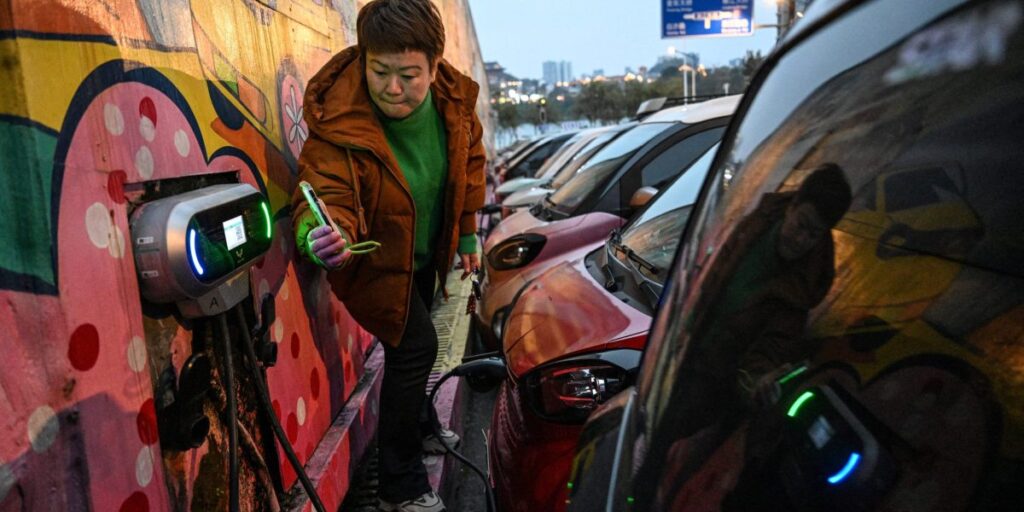
Just days after the European Union said it planned to impose temporary tariffs on Chinese-made electric vehicles, Beijing launched an investigation into EU pork imports, targeting European farmers rather than carmakers.
China’s Ministry of Commerce did not mention electric vehicle tariffs when it announced an anti-dumping investigation into pork from Europe on Monday, but the move was widely seen as a response to EU measures targeting electric vehicles. This also provides China with bargaining leverage in any trade negotiations.
China could have imposed a 25% tariff on imports of large-engine gasoline-powered cars in the name of fighting climate change, a move that would have dealt a heavy blow to Mercedes and BMW. The government has chosen not to do so, at least for now, possibly in recognition of public opposition in the German car industry to EU tariffs and its large-scale production in China.
The Chinese market is the main market for German automakers. The head of the country’s Automobile Association (VDA) said that the EU tariff announcement on June 12 was another step towards global cooperation. “This measure leads to a further increase in the risk of global trade conflicts,” Hildegard Muller said in a statement.
The investigation into EU pork imports will cover a variety of products, including fresh and frozen pork, intestines and other offal. It is expected to take a year, with the possibility of an extension of six months, the announcement said.
European Commission trade spokesman Olof Gill told reporters in Brussels that EU agricultural subsidies are “strictly consistent with our WTO obligations” and that the European Commission will pay close attention to the investigation and intervene as needed to ensure that China investigation was carried out.
Chinese officials say the EU’s investigation into subsidies for Chinese electric vehicle production is a “typical protectionist act” that ignores WTO rules. The EU plans to impose temporary tariffs of 17.4% to 38.1% on electric vehicles from China for four months starting from July 4. .
EU pork product exports to China peaked at 7.4 billion euros ($7.9 billion) in 2020, when Beijing was forced to look abroad to meet domestic demand after its pig farms were decimated by swine fever. Its sales have since declined, reaching 2.5 billion euros ($2.6 billion) last year. Almost half of them are from Spain.
“We must avoid an escalation of trade countermeasures,” Spanish Economy Minister Carlos Culpo said.
Spanish pork industry association Interporc said in a statement that it would “fully cooperate with the Chinese authorities” and provide them with any documents required.
“The agricultural industry does not tend to be a source of conflict, but it often ends up paying a price,” Spanish Agriculture Minister Luis Planas said, citing U.S. tariffs on some EU agricultural products in 2019. Subsidy dispute with manufacturer Airbus.
“I believe we have the time and room to negotiate and try to avoid this trade conflict,” Planas said.

